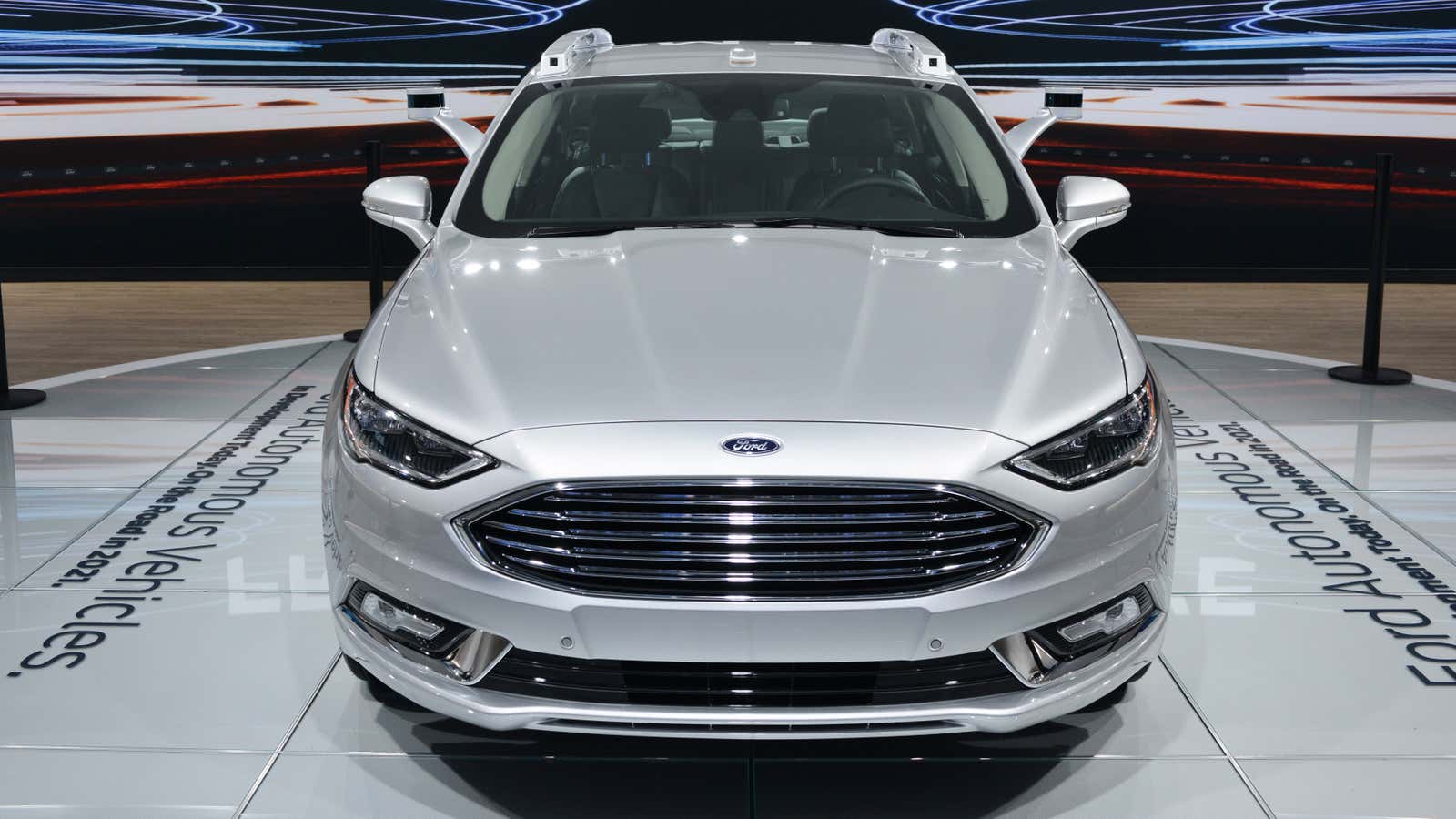Ford has been building cars for over a century, and even invented the way that every company builds cars. It’s also been working on self-driving cars for the better part of a decade, and aims to have its first fleet of autonomous vehicles on the road by 2021. But making software is still a relatively new beast for automakers, and to help hit that four-year goal, Ford today said it would invest $1 billion over five years in a new startup called Argo AI.
Argo AI was founded by Bryan Salesky and Peter Rander, both alumni of Carnegie Mellon University’s National Robotics Engineering Center, which Uber famously routed in 2014 to bolster its self-driving car team. Rander actually worked at Uber until late last year, and Salesky worked as the director of hardware for Google’s autonomous car project, which was recently renamed Waymo.
Ford’s own self-driving car team will partner with Argo’s team in an effort to “strengthen the commercialization of self-driving vehicles,” according to a statement from the company. Argo plans to staff up to 200 people, with a headquarters in Pittsburgh and operations both in Silicon Valley and near Ford’s headquarters in Michigan. It isn’t yet clear how much of the $1 billion pledge Argo will be receiving upfront, and Ford declined to comment.
While there has been some discussion around whether Silicon Valley companies like Alphabet, Tesla, and Uber would be able to upend traditional automakers in the race to develop self-driving cars, it seems increasingly likely that the future will be driven by partnerships. Building cars is a difficult, complicated process, which car companies like Ford, GM, and Fiat-Chrysler have down to a science. Although Tesla has arguably become the first successful new US car company in decades, it still doesn’t produce vehicles at a scale anywhere near that of Detroit automakers. Waymo recently partnered with Fiat-Chrysler to develop cars for its service, and Mercedes producer Daimler is doing the same for Uber. GM also purchased a self-driving car startup, called Cruise Automation, for $1 billion in 2016, a move not unlike Ford’s investment today.
“We are at an inflection point in using artificial intelligence in a wide range of applications, and the successful deployment of self-driving cars will fundamentally change how people and goods move,” Salesky said in a release. “We are energized by Ford’s commitment and vision for the future of mobility, and we believe this partnership will enable self-driving cars to be commercialized and deployed at scale to extend affordable mobility to all.”
